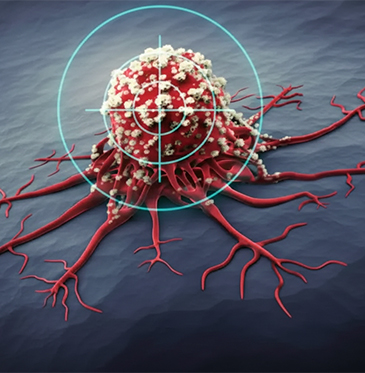
At the Bhagwan Mahaveer Cancer Hospital & Research Centre (BMCHRC), our Anaesthesia & Critical Care represents the forefront of compassionate cancer care. We understand that a cancer diagnosis can be overwhelming, both physically and emotionally, which is why our dedicated team is committed to providing personalized and comprehensive care to every individual who walks through our doors.
Anaesthesia and Critical Care play integral roles in the comprehensive management of patients undergoing surgical procedures and those requiring intensive medical intervention. At Bhagwan Mahaveer Cancer Hospital & Research Centre (BMCHRC), our Anaesthesia & Critical Care Department is committed to providing exemplary care that ensures patient comfort, safety, and well-being throughout their healthcare journey. With a focus on innovation, expertise, and compassion, our dedicated team of anaesthesiologists and critical care specialists work tirelessly to optimize outcomes and enhance the overall patient experience.
.webp)
In our operating theatres, we ensure comprehensive patient monitoring with technologies like Cardiac Output Monitoring and BIS Monitoring. These systems provide real-time data on cardiac function and depth of anesthesia, allowing our anesthesiologists to adjust interventions promptly, enhancing patient safety and optimizing anesthesia delivery for better surgical outcomes.
.webp)
Our hospital is equipped with a range of infusion pumps catering to diverse patient needs. From PCA (Patient-Controlled Analgesia) pumps for postoperative pain management to epidural infusion for labor analgesia and nerve blocks for regional anesthesia, we ensure precise medication delivery. Continuous intravenous infusions are also facilitated, ensuring accurate and consistent administration of medications for optimal patient care.

BMCHRC's Department of Critical Care oversees advanced medical and surgical critical care units. Staffed by experienced critical care specialists and equipped with state-of-the-art technology, these units provide round-the-clock monitoring and intensive care interventions for patients with life-threatening conditions. Our commitment to excellence in critical care ensures that patients receive timely and comprehensive support, contributing to improved outcomes and patient well-being.
Meet our esteemed team of medical professionals, each equipped with years of specialized expertise and unwavering dedication to patient care.
At BMCHRC, we are committed to delivering Anaesthesia & Critical Care services that incorporate the latest advancements in medical technology and clinical expertise. Our hospital is equipped with state-of-the-art facilities and cutting-edge equipment to support our specialized care:
Anaesthesiologists are responsible for administering anaesthesia to patients undergoing surgical procedures, ensuring their comfort and safety throughout the operation. They also monitor vital signs, manage pain, and oversee the patient's recovery from anaesthesia.
Anaesthesia techniques vary depending on the type and duration of surgery, as well as the patient's medical history and preferences. Common types of Anaesthesia include General Anaesthesia, regional Anaesthesia (such as epidurals or nerve blocks), and local anaesthesia.
Preoperative Evaluations help assess the patient's overall health status, identify any medical conditions or risk factors that may affect Anaesthesia or Surgery, and develop a personalized anaesthesia plan to ensure a safe and successful outcome.
Pain Management during and after Surgery may involve a combination of medications, regional anaesthesia techniques, nerve blocks, and non-pharmacological interventions such as relaxation techniques or physical therapy. The goal is to minimize pain and discomfort while promoting early recovery.
Although rare, potential risks and complications of Anaesthesia may include Allergic Reactions, respiratory problems, Cardiovascular complications, nerve damage, and awareness during surgery. However, these risks are minimized through careful patient assessment, monitoring, and adherence to safety protocols.
Critical Care specialists are responsible for providing specialized medical care to patients with life-threatening illnesses or injuries. They oversee the management of complex medical conditions, monitor patients closely in the intensive care unit (ICU), and coordinate multidisciplinary care to optimize outcomes.
Patients are typically admitted to the Critical Care Unit (CCU) based on the severity of their condition and the need for specialized monitoring and treatment. Admission criteria may include unstable vital signs, respiratory failure, hemodynamic instability, or postoperative complications.
Patients with respiratory Failure, Acute Lung Injury, or conditions such as Pneumonia, Sepsis, or Acute Respiratory distress syndrome (ARDS) may require mechanical ventilation to support breathing and oxygenation. Mechanical ventilation delivers oxygen-rich air to the lungs through a ventilator machine.
Management of Sepsis or Septic shock involves early recognition, aggressive fluid resuscitation, administration of antibiotics, hemodynamic support, and organ support measures as needed. Prompt intervention is crucial to improving outcomes and reducing mortality rates.
Palliative care focuses on relieving symptoms, managing pain, and improving quality of life for patients with serious illnesses, regardless of prognosis. End-of-life care, on the other hand, involves providing comfort and support to patients and their families during the dying process, including emotional and spiritual care.
Weaning off mechanical ventilation involves gradually reducing ventilator support while closely monitoring the patient's respiratory status and readiness for spontaneous breathing. Criteria for successful weaning include adequate oxygenation, stable vital signs, and the ability to maintain adequate ventilation independently.
Families of patients in the ICU may receive support from Social workers, Chaplains, Psychologists, and Palliative Care Specialists to address their emotional, spiritual, and practical needs. Communication with the healthcare team, access to resources, and involvement in decision-making are also important aspects of family support.
Infection Prevention in the ICU involves strict adherence to hand hygiene practices, use of personal protective equipment (PPE), maintenance of aseptic techniques during procedures, and implementation of infection control protocols such as isolation precautions and environmental cleaning.
Telemedicine allows Critical Care Specialists to remotely monitor patients, consult with other healthcare providers, and provide timely interventions, especially for patients in remote locations or during off-hours. It enhances access to specialized care, facilitates communication, and improves patient outcomes.
Healthcare providers can stay updated on advancements in anaesthesia and critical care through continuing education, participation in professional conferences and workshops, subscription to medical journals and online resources, and collaboration with colleagues in the field. Ongoing learning and professional development are essential to providing high-quality patient care.
Request a callback from our healthcare specialist

